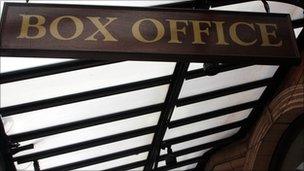Glasgow's cultural sector 'booming'
- Published

The report said there were about nine live performances a day in the city
Glasgow's cultural sector has boomed since 1990, when the city was named European Capital of Culture, a new report has claimed.
The study, commissioned by Glasgow City Council, found that about 30,000 people now worked in the city's cultural and creative industries.
The authors said the figure represented one of the largest concentrations of the creative economy outside London.
Glasgow was the first UK city to be named culture capital.
The title is awarded by the European Union annually to promote common history and values.
'Cultural metropolis'
Two decades after his first report into the impact of 1990, analyst John Myerscough found the number of live performances - whether music, theatre or dance - had risen by 82% since 1992.
The figure equates to an average of nine live performances every day.
Glasgow City Council leader Gordon Matheson said: "Glasgow is Scotland's cultural metropolis, a creative powerhouse which boosts not only the city's standing both at home and abroad, but is a key provider of jobs across the city.
"Since long before 1990, the city prioritised our heritage, art and culture as a way of transforming our fortunes. This landmark report proves that our investment has worked.
"We've long said that Glasgow is the driving force in Scottish culture and this report proves there is no greater cultural destination outside London."
Glasgow City Council commissioned the report along with Glasgow Life and Creative Scotland.
The authority said it had plans to further expand the sector with various projects, including the new £74m Riverside Museum.